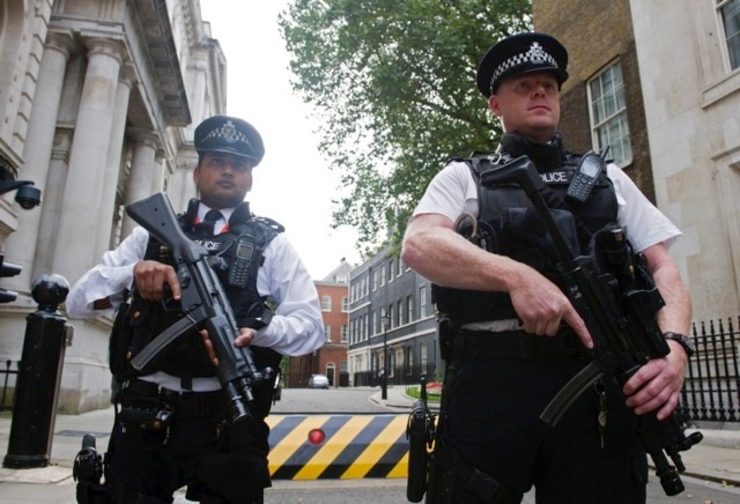SUMMARY
This is AI generated summarization, which may have errors. For context, always refer to the full article.

LONDON, United Kingdom (UPDATED) – Britain raised its terror threat risk level to “severe” on Friday, August 29, meaning an attack is thought to be “highly likely”, due to fears over the situation in Iraq and Syria.
The move comes after the killing of US journalist James Foley, apparently by a man speaking with an English accent who belonged to the jihadist group Islamic State.
While there was no intelligence to suggest that an attack on Britain is imminent, Prime Minister David Cameron said there was “no doubt in my mind” that IS had its sights set on targets in Europe.
“What we are facing in Iraq now with ISIL (IS) is a greater and deeper threat to our security than we have known before,” he told a press conference just after the threat level was raised.
“We are facing a terrorist organization not being based in a country but seeking to establish and then expand its own terrorist state.”
The increase in the threat level comes ahead of a NATO summit being hosted by Cameron’s government in Wales from next Thursday, September 4.
The threat level is now at the second highest out of 5 possible categories. It is also at its highest since July 2011.
Cameron said he was to give a statement to parliament on Monday, September 1, about planned new laws cracking down on British would-be jihadists.
These include removing passports more easily from people suspected of wanting to travel to fight in Iraq and Syria or returning from there.
Fears over Syria-bound fighters
IS posted a video last week in which a masked militant with a London accent is seen executing Foley, who had been missing since his capture in northern Syria in 2012.
There is growing concern in Cameron’s government that, as well as traveling to fight abroad, British passport holders heading to Iraq and Syria could return to commit attacks on British soil.
More than 500 Britons have travelled to Syria or Iraq to fight with jihadists in the last few years, according to the intelligence services.
Ministers are also under pressure to step up action to prevent the radicalization of young Muslims in Britain.
Anti-terror police this week urged Britons to identify “aspiring terrorists” among family members, friends and neighbors.
The number of arrests has also been ratcheting up.
British police made 69 arrests in the first half of 2014 on suspicion of offenses including traveling abroad for terrorist training – a rate five times higher than in 2013.
Police said they would be increasing the number of visible patrols as well as implementing other unspecified security measures from Friday.
Raffaello Pantucci, of the Royal United Services Institute (RUSI) defense think-tank, said officials were “very concerned” about the scale of the threat.
“It all speaks to a very dangerous confluence of events. The threat picture is very menacing,” he added.
Britain has ruled out sending ground troops into Iraq to combat the threat from jihadists but it is transporting equipment including ammunition from third party countries to Kurdish peshmerga fighters.
Cameron spoke a year to the day since losing a vote in parliament on British military action in Syria after President Bashar al-Assad’s regime was accused of carrying out a chemical weapons attack against civilians.
Analysts say the memory of that damaging defeat is part of the reason why Britain has been hesitant to play a bigger military role in northern Iraq.
Meanwhile the White House said it has no plans to raise terror alert levels in the United States, despite Britain’s decision.
“I don’t anticipate at this point there is a plan to change that level,” White House spokesman Josh Earnest said, when asked whether Washington anticipated issuing a similar warning to Americans over a perceived threat from IS operatives.
Earnest said that senior US national security officials had been in close contact with the British over the issue.
Homeland Security Secretary Jeh Johnson said that at present, the DHS and FBI are “unaware of any specific, credible threat to the US homeland” from IS. – Rappler.com
Add a comment
How does this make you feel?
There are no comments yet. Add your comment to start the conversation.